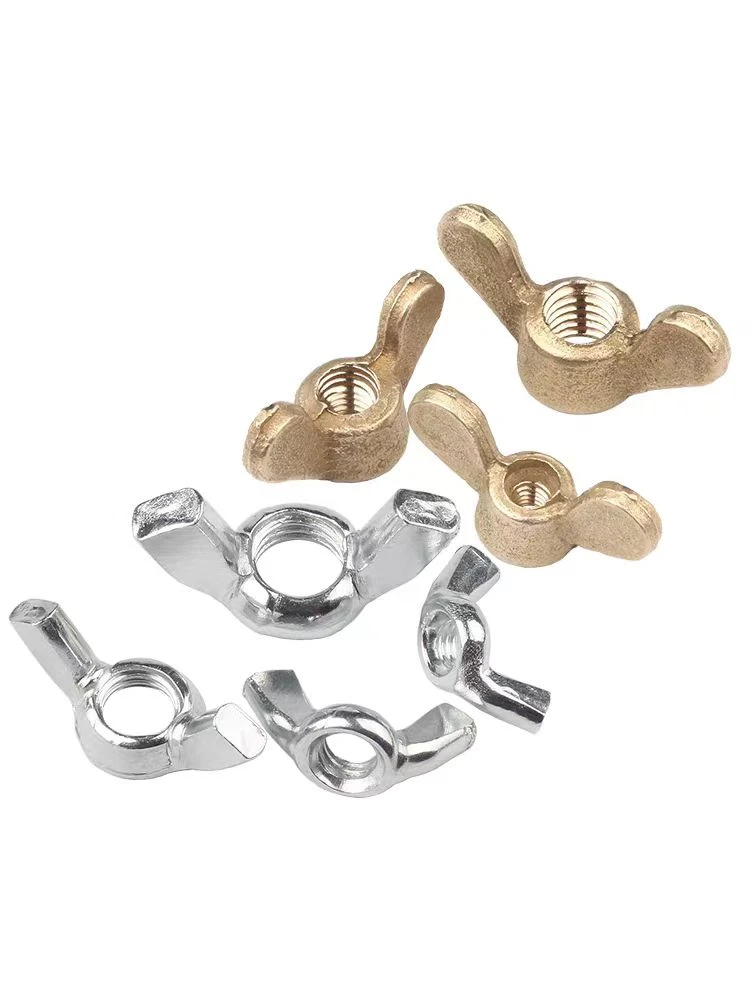

types of anchor bolts for concrete
Nov . 08, 2024 18:22 Back to list
types of anchor bolts for concrete
Types of Anchor Bolts for Concrete
Anchor bolts are crucial components used in construction to secure structures to concrete foundations. They provide a reliable fastening solution, ensuring that various elements are anchored securely, thus enhancing stability and safety. Selecting the right type of anchor bolt for a particular application is vital to ensure optimal performance. This article explores the different types of anchor bolts used in concrete construction, their characteristics, and applications.
1. L-Shaped Anchor Bolts
L-shaped anchor bolts feature a 90-degree bend at one end, which aids in anchoring reinforced concrete or masonry. The long end is embedded in the concrete, while the short end is exposed for attaching structural elements such as beams or colonnades. They are commonly used in the construction of buildings, bridges, and other infrastructural projects where a secure connection is required. The design of L-shaped anchor bolts provides excellent resistance to shear forces and tension, making them a reliable choice for various applications.
2. Straight Anchor Bolts
Straight anchor bolts are simple cylindrical rods that are embedded into the concrete with one end protruding for fastening. They are among the most commonly used anchor bolts in construction. The exposed end is typically threaded, allowing for easy attachment of nuts and other hardware. Straight anchor bolts are versatile and can be used in numerous applications, including securing machinery, electrical fixtures, and structural frames. Their straightforward design makes them easy to install and adjust, providing strength and reliability.
3. J-Bolts
J-bolts, shaped like the letter J, consist of a long, straight shaft with a hook at one end. This design is particularly effective for anchoring wooden structures or other components where a strong hold is necessary. The hooked end of the J-bolt provides additional resistance against pull-out forces, making it an excellent choice for applications where uplift forces might occur, such as in wind-prone areas. J-bolts are often used in bridge construction, towers, and other structures requiring secure anchorage.
types of anchor bolts for concrete

4. Expansion Bolts
Expansion bolts are designed to expand upon insertion into a pre-drilled hole within the concrete. They typically consist of a bolt or screw with a cone-shaped end that, when tightened, forces the sides of the bolt to expand against the walls of the hole. This type of anchor bolt is particularly effective for applications where the concrete may be subject to tension forces, as the expansion creates a solid hold within the material. Expansion bolts are widely used for securing fixtures, mounting brackets, and even in heavy-load applications.
5. Sleeve Anchors
Sleeve anchors are a type of expansion anchor that consists of a bolt passing through a cylindrical sleeve. Upon tightening, the sleeve expands against the concrete, offering a strong holding power. Sleeve anchors are suitable for both solid and hollow concrete applications and are often used for attaching shelves, cabinets, and heavy fixtures to walls. Their versatility and ease of installation make them a popular choice in both residential and commercial construction.
6. Chemical Anchors
Chemical anchors utilize an adhesive system to secure the anchor bolt into the concrete. This type of anchor is particularly valuable in applications requiring high load capacities or where traditional mechanical anchors may not perform well due to the condition of the concrete. Chemical anchors are applied using a two-part epoxy or polyester resin that hardens and bonds the anchor to the concrete, allowing for exceptional load-bearing capabilities. They are widely used in applications such as anchoring machinery, handrails, and structural elements in challenging concrete environments.
Conclusion
Choosing the right type of anchor bolt is a critical factor in ensuring the safety and stability of any construction project. Whether opting for L-shaped, straight, J-bolts, expansion bolts, sleeve anchors, or chemical anchors, understanding each type's characteristics and applications allows engineers and builders to make informed decisions. Proper installation and selection of anchor bolts will not only enhance the longevity of the structure but also diminish the risk of failure due to inadequate fastening. Thus, a thorough knowledge of anchor bolts is essential for successful concrete construction.
Latest news
-
High-Strength Hot Dip Galvanized Bolts - Hebei Longze | Corrosion Resistance, Customization
NewsJul.30,2025
-
Hot Dip Galvanized Bolts-Hebei Longze|Corrosion Resistance&High Strength
NewsJul.30,2025
-
High-Strength Hot-Dip Galvanized Bolts-Hebei Longze|Corrosion Resistance&High Strength
NewsJul.30,2025
-
Hot Dip Galvanized Bolts-Hebei Longze|Corrosion Resistance&High Strength
NewsJul.30,2025
-
Hot Dip Galvanized Bolts - Hebei Longze | Corrosion Resistance, High Strength
NewsJul.30,2025
-
High-Strength Hot Dip Galvanized Bolts-Hebei Longze|Corrosion Resistance, Grade 8.8
NewsJul.30,2025

